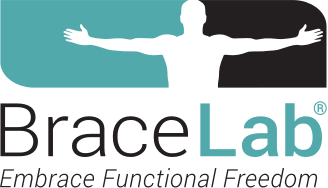Connect, Collaborate, and Cooperate

June 2023 No. 79
Connect, Collaborate and Cooperate
Karol S. Young, OTD, OTR/L, CHT
Hand therapy demographics are changing. The occupational and physical therapists who had the passion, vision, and knowledge to develop the specialized practice of hand therapy are nearing retirement age, changing hand therapy demographics. One accompanying change is that hand therapists who worked closely alongside other therapists and hand surgeons in clinics or urban medical centers now often practice in stand-alone outpatient clinics or in rural settings. According to the 2019 practice analysis of hand therapy, 46% of practicing hand therapists do not work within proximity to a hand surgeon.
As an educator working with students eager to learn about the specialty of hand therapy, and as a clinician concerned about the future integrity of the hand therapy specialty, I wonder, how can we collaborate and support each other while also promoting the growth of hand therapy?
Inspiration for New Clinicians
Mentoring is as simple as teaching a new treatment technique to a co-worker or peer. Peer mentoring provides a supportive learning environment that is non-competitive and allows a collaborative exchange of ideas. If you are the only hand therapist in your clinic you will benefit from outside contact to support your professional development. How can you do this?
- Find a peer mentor
- Join your professional organization and volunteer: AOTA, APTA, ASHT. Some volunteer opportunities have a small time commitment that may fit your busy schedule.
- Use reliable resources such as the Clinician's Classroom to learn new clinical skills.
- Look for a research/journal club in your area or explore access to hand therapy content through podcasts.
- Journal clubs can be found here
- Access to research articles is easy through your local library or at ProQuest.
- Some examples of podcasts with hand therapy content are Hands in Motion, Hand Therapy Heroes, and the Hand to Shoulder Podcast.
- To strengthen your professional relationships, reach out to other therapists in your community and learn of their treatment specialty (Lymphedema, Dry Needling, Pelvic Floor). Create a list you can use for referrals of patients with specific problems.
- Reflect on how you best acquire new knowledge and challenge yourself to learn new treatment techniques that will benefit your patients. Take a continuing education course, participate in self-paced study or shadow a therapist who can assist you in learning a new skill.
Ideas for Experienced Clinicians
- Become a peer mentor to a less experienced clinician.
- Contact OT/PT educational programs and offer your clinic for student interns.
- Start a journal club or host an orthosis learning lab at your clinic; invite therapists in your area to bring scrap materials and innovative orthotic design ideas to share.
- Develop or strengthen relationships with current referring physicians and therapists. This can be achieved through communicating on a regular basis or sharing case studies of interesting patients/conditions.
- Educate physician support staff (physicians assistants, nurse practitioners, and medical assistants) regarding the importance of hand therapy in patient outcomes. According to Krishan and Chung, hand therapy is crucial to post operative care, and access to hand therapy can be limited due to geography and care coordination limitations.
- Reach out to hand surgeons and hand therapists at larger urban facilities letting them know your location, qualifications, and the specialty services you provide. Larger centers want contacts with outside facilities to refer patients for follow up care to reduce gaps in patient care.
- Promote the specialty of hand therapy within your own community by providing educational presentations for local groups, volunteering at career fairs, and writing an article for the local paper on basic topics pertaining to the upper extremity.
Collaboration is needed to preserve and improve the availability of hand therapy services. Connecting with peers will help us stay current with the best evidence and it facilitates participation in lifelong learning, promoting leadership, education, and the advancement of the specialty of hand therapy. It takes a village.


Connect, Collaborate, & Cooperate Infographic (Click to download)
Download Clinical Pearl No. 79, Connect, Collaborate and Cooperate, June 2023
© BraceLab; 2023 all rights reserved
Disclaimer: BraceLab Clinical Pearls are intended to be an informal sharing of practical clinical ideas; not formal evidence-based conclusions of fact.
